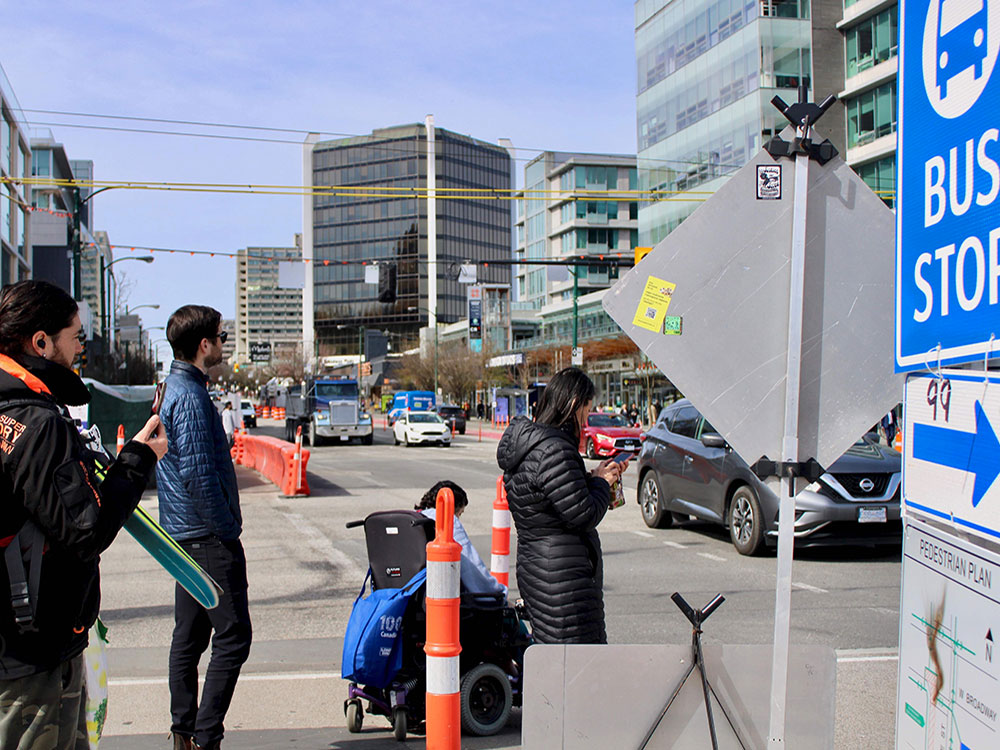ABC city councillors voted down a staff recommendation that would have slowed the pace of renter displacement in the Broadway Plan area, saying that high interest rates, tenant relocation rules and city staffing constraints will “naturally” act to slow development.
“This would send a huge signal that we are not taking housing seriously,” said ABC Coun. Sarah Kirby-Yung.
The pace of change proposal would have limited the number of new rental projects that displace older buildings. Council was given the option of limiting new projects to five per year, displacing around 180 renters per year; 15 projects, displacing around 550 renters; 30 projects, displacing around 910 renters; or no limits, which could lead to up to 2,000 tenants having to move each year.
But developers lined up to tell councillors the city desperately needs to add more new rental development, not slow it down, especially because Metro Vancouver expects to welcome up to 60,000 new residents a year and high interest rates have made it more difficult for developers to get financing.
“We simply can’t afford to put any roadblocks in place that do anything whatsoever to impede all applications,” said Bryce Margetts, senior vice-president of Western Canada for Canderel, a company that develops and manages real estate. Margetts said there are currently “serious headwinds” making it difficult to get financing for new purpose-built rental across Canada.
Although the city has received 96 development inquiries and four applications for the Broadway Plan area, “my view is that council should consider the amount of shovel-ready projects in the pipe at zero” because of the financing environment, Margetts said.
City staff and developers also told council that development proposals already take a long time to progress through the application process, meaning the many projects take years between the initial inquiry and start of construction.
Melissa Bernstein, a 24-year-old university student, was the sole Broadway renter to speak to council in support of the proposal.
“If we can slow development a little bit in terms of not displacing people and prioritizing projects that don’t have people living in them, that seems like a good thing,” Bernstein said.
The Broadway Corridor is now facing a wave of redevelopment after city council voted last summer to approve a plan to densify the six-kilometre-long corridor. The Broadway Plan applies from Clark Drive to Vine Street and from First to 16th avenues on either side of Broadway. A SkyTrain extension is currently being built along Broadway and a plan to densify both housing and commercial space along the main urban thoroughfare has been in the works for years.
The area, which includes parts of Grandview-Woodland, Mount Pleasant, Fairview, Granville South and Kitsilano, houses around 30,000 renters, many of them in older, more affordable low-rise rental buildings. The plan would add a potential 50,000 more residents.
The Broadway Plan was passed with unique tenant protection rules. If a developer plans to tear down a rental building and build a new one, the tenants must be temporarily rehoused in another rental at the same rate they were paying — with moving costs covered.
When the new building is completed, they must be offered the option to move in at the same rent they were paying before, or rent that is 20 per cent below average rent in Vancouver, whichever is less.*
In other parts of the city, tenant relocation policies are much weaker. Tenants must be offered a choice of alternate rental options and must be paid compensation depending on how long they’ve lived in their units.
City staff expect those tenant relocation rules to steer the first wave of development to sites where new buildings won’t displace existing renters. The theory is that those new buildings will then help to provide temporary housing for the next phase of development, when renters will be displaced from older buildings.
The pace of change proposal would have exempted proposals from co-ops, social housing and buildings that include a larger percentage of below-market rent units from the restrictions. That would have had the effect of prioritizing those applications, council heard from staff.
Renters along the corridor are seeing a rush of building sales and listings. Many Broadway tenants don’t trust that tenant relocation policies will actually be enforced, said Green Coun. Pete Fry. ABC’s decision to cut the city’s renter office is another source of concern, Fry said. That office worked with tenants and other city departments to ensure that tenant relocation policies were being followed.
“I’m going to get to come back in three-ish years and get 20 per cent off my rent — wonderful,” said Bernstein. “But is it going to get enforced?”
ABC Coun. Lisa Dominato said that slowing down construction of new housing along a $2.8-billion subway line is not the way to go.
“In roughly three year’s time, we’re going to have a Broadway subway line open and operating and part of our commitment in accepting funding for that very crucial public transit in our city is to have added density in this area,” Dominato said.
Mayor Ken Sim recused himself from the discussion and vote, saying he has close relationships with “individuals who own property in the area.”
* Story updated on March 30 at 11:06 p.m. to include that displaced renters must be given the option to return to new rental buildings at the same rent they were paying before, or rent that is 20 per cent below average in the city, whichever is less. ![]()
Read more: Housing, Municipal Politics, Urban Planning

















Tyee Commenting Guidelines
Comments that violate guidelines risk being deleted, and violations may result in a temporary or permanent user ban. Maintain the spirit of good conversation to stay in the discussion and be patient with moderators. Comments are reviewed regularly but not in real time.
Do:
Do not: